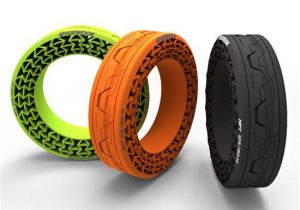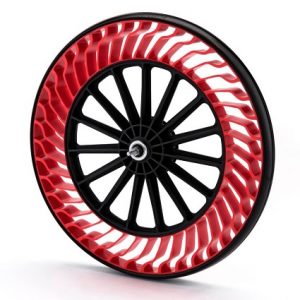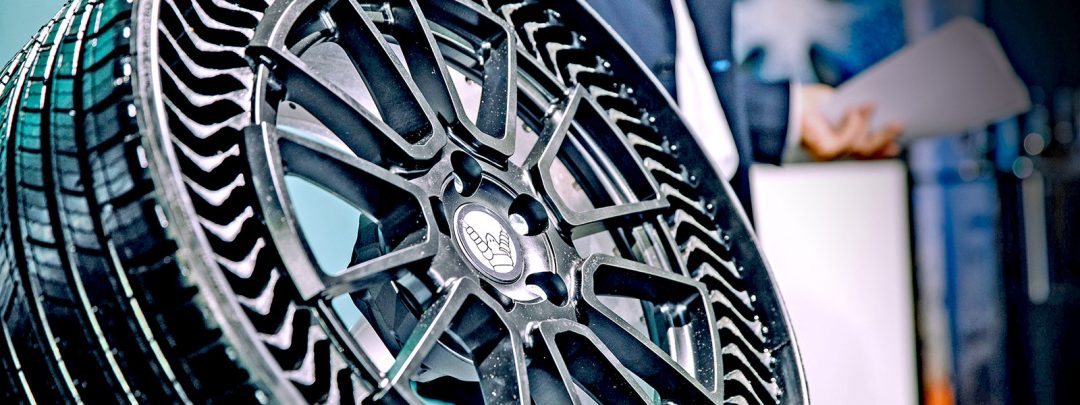The so-called Uptis prototype is part of Michelin’s strategy for research and development in sustainable mobility, as the French company told. The concept has four main pillars of innovation: airless, connected, 3D-printed, and 100% sustainable—i.e., entirely renewable or bio-sourced materials.
Florent Menegaux, chief executive officer for Michelin Group said: “Uptis demonstrates that Michelin’s vision for a future of sustainable mobility is clearly an achievable dream. Through work with strategic partners like [General Motors], who share the ambitions for transforming mobility, we can seize the future today.”
Steve Kiefer, senior vice president, global purchasing and supply chain, General Motors (GM), replied: “General Motors is excited about the possibilities that Uptis presents, and we are thrilled to collaborate with Michelin on this breakthrough technology. Uptis is an ideal fit for propelling the automotive industry into the future and a great example of how our customers benefit when we collaborate and innovate with our supplier partners.”

Hankook also thinks about tires without air pressure. Image Credit: Hankook.
According to the companies, the novel tire is re-engineered for today’s passenger vehicles, and it is well suited to emerging forms of mobility. The vehicles and fleets of tomorrow—whether autonomous, all-electric, shared service, or other applications—will demand near-zero maintenance from the tire to maximize their operating capabilities.

Bridgestone has developed a bicycle tire as an effort to realize practical application of the air free concept. Image Credit: Bridgestone.
This is not the first airless tire concepts have been looked at, and other tire manufacturers are currently conducting research on this topic such as Bridgestone and Hankook.
However, Michelin asserts that the prototype demonstrates their capacity for innovation—in both the mastery of these high-tech materials, and the development approach in close collaboration with GM, which validates strategy as a roadmap for innovation.
“Uptis represents progress toward Michelin’s vision for tomorrow’s mobility, and embodies the commitment to a better, sustainable mobility for all”, said Eric Vinesse, executive vice president, research and development, Michelin.
The tire company pledges that the innovations result in extraordinary environmental savings: approximately 200 million tires worldwide are scrapped prematurely every year as a result of punctures, damage from road hazards, or improper air pressure that causes uneven wear.
Later this year, Michelin and GM will initiate the real-world testing.

















